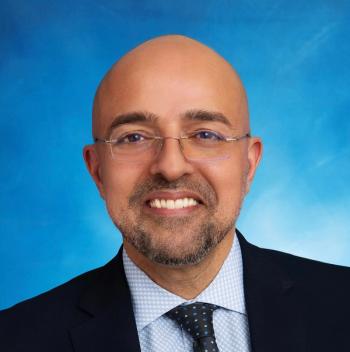
Hospitals oppose proposed changes to 340B drug discount program | Bills and Laws
Health systems say the legislation would impose burdensome reporting requirements. Critics say the program needs more transparency and reform.
The skinny
A House panel has approved legislation that would impose new requirements for hospitals participating in the federal government’s 340B program, which offers discounts on some drugs.
Sponsor
U.S. Rep. Larry Bucshon, a Republican from Indiana, is the prime sponsor of the bill. He’s also a medical doctor.
Summary
The federal government’s 340B program offers discounts on outpatient medications for hospitals and health systems that serve a high percentage of patients from underserved groups, including minority communities and those with low incomes.
Buchson is pushing legislation (
The bill would also give the Health Resources and Services Administration the ability to perform audits to examine how hospitals are using the savings they receive in the 340B program.
Buchson says the bill would offer more transparency in the program. The House Energy and Commerce Subcommittee on Health approved the bill by a 16-12 vote last month.
Critics
Hospital advocacy groups and other healthcare organizations oppose the legislation. They argue that the reporting requirements are too onerous. They also say they’re concerned about HRSA’s scope in auditing the hospital’s use of the savings.
The American Society of Health-System Pharmacists, the American Hospital Association, and America’s Essential Hospitals sent a
“Requiring hospitals to report charity care data assumes that covering such costs is the primary purpose of 340B and adds unnecessary burden to hospitals, which already report this information at the hospital level on Medicare cost reports,” the groups wrote. “340B is intended to help hospitals stretch scarce resources, which means it is used in many ways to support patient care, depending on the needs of patients and the community.”
Another group, 340B Health, which is aiming to preserve the program, said in a
The group says the legislation “improperly suggests hospitals should use their 340B savings in the specific office location to which the savings pertain. Congress intended for hospitals to use 340B savings in ways that would best serve patients, including in locations where 340B drugs are not used, such as inpatient settings.”
“Because of our substantial concerns, especially as 340B hospitals grapple with significant challenges as they work to serve increasingly vulnerable patient populations, we urge that the legislation not be adopted,” the group said.
Perspective
Hospitals say the program offers critical help in caring for patients in underserved communities. They say that scaling back the program could force them to reduce services in urban and rural areas.
However, critics of the program, including pharmaceutical companies and some patient advocacy groups, suggest the program’s use has grown beyond the intentions of Congress. Some patient advocacy groups also contend that health systems aren’t passing the savings onto patients.
The Alliance for Integrity and Reform of 340B has also said that hospitals participating in the 340B program are
Bucshon has
Drug companies have scaled back their discounts in the 340B program, and s
Lawmakers and healthcare organizations will likely be debating the scope of the 340B program in the months to come.







































